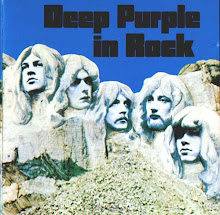I've been filling my idle moments this week by reading Jonathan Spence's God's Chinese Son, an account of the bloody Taiping Rebellion of the mid-1800s (highly recommended - the book, that is, not bloody rebellion).
From the first chapter I learned that the word pidgin originates from the hybrid language that evolved in the first European trade settlement at Canton in the early 1800s, a contraction of the locals' attempt to pronounce (and/or to transliterate in Chinese characters) 'business' - 'pidginess'.
Many different types of activity became designated as some variety of 'pidgin' in this improvised language. Religious services, for example, were joss pidgin (joss deriving from 'deos', the Portuguese for 'god').
My favourite example, though, is this: SEX was termed love-business - lof pidgin.
Alas, I never did have much of a head for business.
And I fear it is going to be a long, long time before I transact any love-business again.

"That's your date, that is, Froog."






1 comment:
I've also seen etymologies of "pidgin" that trace it to the Cantonese reading of 賠錢 (péiqián in Mandarin, puìhchín in Cantonese); don't know which one's more current, but "business" makes more sense to me.
Post a Comment